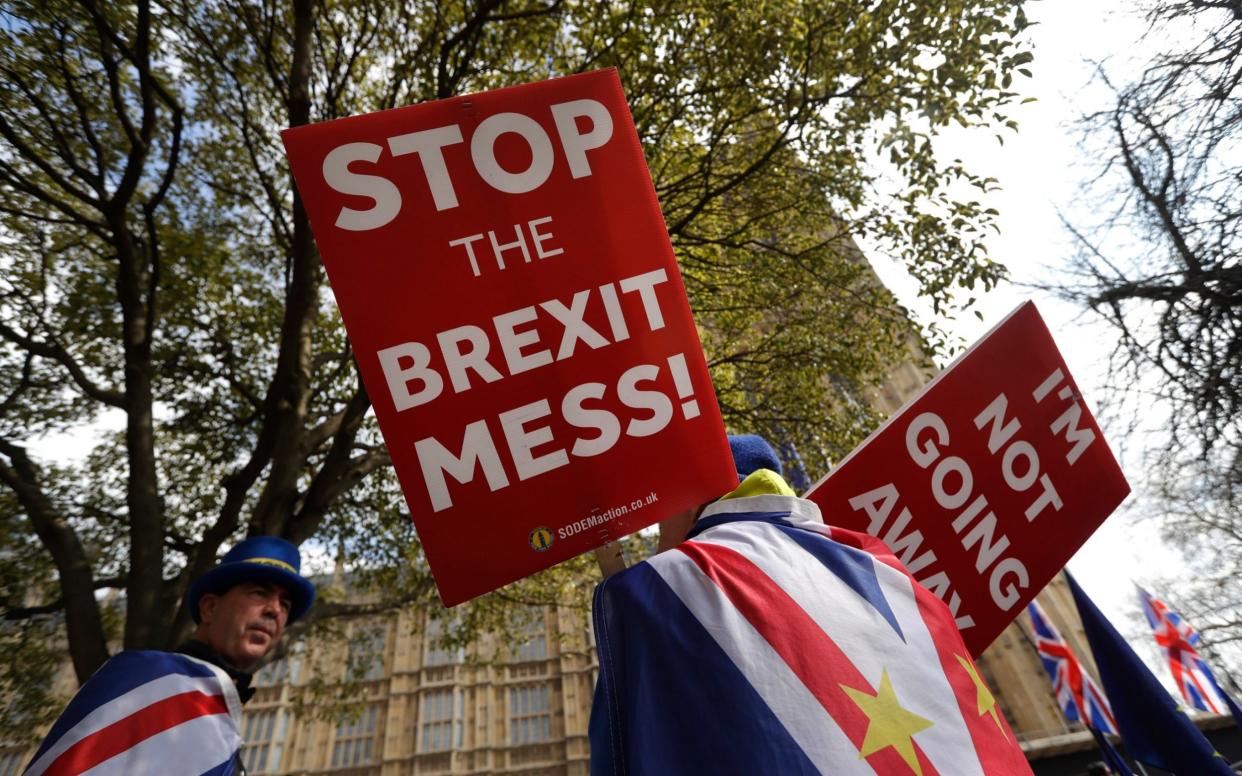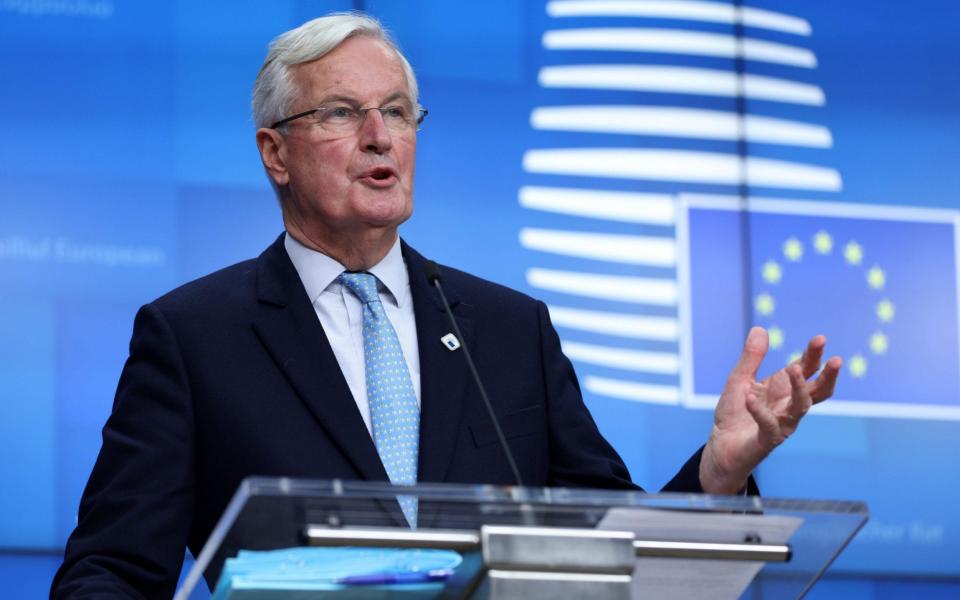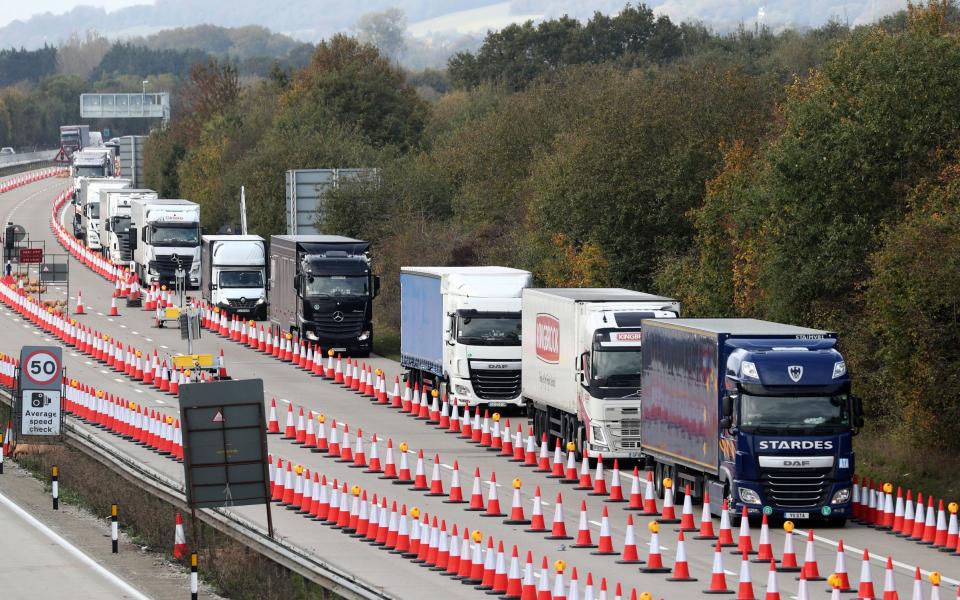What no-deal Brexit means, how it might happen, and how it might affect daily life in the UK

UK-EU trade talks were temporarily suspended on 19 November after a negotiator from Michel Barnier's team tested positive for Covid-19.
On Twitter, David Frost, the UK's chief negotiator, said: "I am in close contact with Michel Barnier about the situation. The health of our teams comes first. I would like to thank the EU Commission for their immediate help and support."
🇪🇺🇬🇧 update: one of the negotiators in my team has tested positive for COVID-19. With @DavidGHFrost we have decided to suspend the negotiations at our level for a short period. The teams will continue their work in full respect of guidelines.
— Michel Barnier (@MichelBarnier) November 19, 2020
On Sunday 15 November, Lord Frost stoked fears that a 'no-deal' Brexit could be on the cards when he arrived in Brussels for renewed talks, warning “we may not succeed” in securing a Brexit trade deal.
He signalled that he would not be deviating from Boris Johnson’s “red lines” amid speculation that the departure of Dominic Cummings from No 10 could herald concessions.
After six months of negotiations and a stalemate over key issues, Lord Frost said there there were still “significant” differences between the UK and EU's stances on fishing rights and the level playing field.
Although he admitted there had been some progress in a "positive direction".
His tone was echoed by Simon Coveney, the Irish Foreign Minister, who said a deal was “very doable” but also “very difficult” and could be scuppered by a deadlock over fishing, with the EU demanding 50 per cent of the catch in British waters and the UK sticking at 20 per cent.
Mr Coveney also repeated the EU’s warning that it would not ratify any deal unless clauses in the Internal Market Bill overriding the Brexit divorce terms were dropped, although he also suggested that issue will “disappear” if there is a wider trade deal.
As Prime Minister Boris Johnson had to self isolate for two weeks, the government is running out of time to close a deal with the EU.
The deadline for the end of the transition period is fast approaching, and a deal needs to be struck well before the 31 December in order to be ratified in time.
Is a no-deal Brexit really possible?
Yes, although the precise nature of "no-deal" has changed given that the United Kingdom left the European Union on 31 January 2020 under the renegotiated terms of Withdrawal Agreement.
The UK is now in the transition period, which deep-freezes its membership of the Single Market and Customs Union until the end of the year. It cannot now be extended.
UK-EU trade negotiations have proved frustrating and remain deadlocked over fishing rights, level playing field guarantees and the enforcement of the deal.

Failure to agree replacement trading arrangements will mean the UK leaving without a deal on January 1 and trading on WTO terms, which would introduce tariffs and quotas.
The Withdrawal Agreement will still be in place, so issues like the Irish border and the so-called "divorce bill" will be settled under its terms, but many other issues remain unresolved.
In other words, the original "no-deal" may not be possible, but what is now known as "no-deal" might better be viewed as a "no trade deal" exit.
What would no-deal look like?
The European Union is adamant that there is no such thing as a "managed" no-deal - fearful that making a no deal look too comfortable risks turning it into a self-fulfilling prophecy.
That will not prevent the European Commission from making contingency plans to smooth out significant disruption but only on a temporary, unilateral basis and only if it is in the EU’s interest.
For example, the last time no-deal appeared to be a possibility the commission made plans for bare bones transport connectivity, which gave UK aircraft temporary but limited permission to land in EU airports.
The commission has insisted there must be no mini-deals but in practice some bilateral agreements are likely to be made.
The reality of a no-deal is likely to be disruptive, but not world-ending. Or in the earthy phrasing of a senior diplomat from an EU trading power: “No deal won't be an explosion, it will be a wet fart.”
Finance & the City
The EU is heavily reliant on London for some financial services and its capital markets.
Whether or not there is a trade deal, UK financial services will only be granted access to the EU market on the basis of “equivalence”, which is the same system of regulatory recognition US firms have.
Equivalence is a unilateral commission decision and can be withdrawn at as little as 30 days notice in some cases.
Brussels has already moved to grant equivalence to UK-based clearing houses, arguing that the institutions, which guarantee large deals, are vital for financial stability.
Trade & Customs
Without any formal trade deal, the UK would have to rely on WTO rules - in a model described by Brexiteers as an "Australia-style" relationship.
The default commission position is “all relevant” EU legislation will apply to imports and exports, including tariffs, which will mean customs checks.

There could be lines of 7,000 trucks at Dover and two-day waits to get into France immediately after the U.K, according to worse case scenarios drawn up by the UK government.
Up to 60 percent of lorries might not have the correct paperwork on January 1, the government said.
The last time no deal was possible, the commission said the UK would have to apply to a licence scheme that currently only cover 5 percent of the volume of hauliers traffic.
There is a small risk of a total ban on all meat exports to the EU, if Brussels does not put the UK on its list of countries with high enough food standards.
The commission insists listing will take place as soon as it gets details of the UK’s future food safety regime.
Data
UK Services trade with the EU was worth £89bn last year, all of which is heavily reliant on the ability to transfer data across borders. The UK has already put the EU’s General Data Protection Regulation (GDPR) onto its statute book.
For now the EU is refusing to say it will reciprocate the UK’s stated intention of allowing data to flow freely from the EU, but industry experts note that when the US-EU data Safe Harbour data deal collapsed the EU allowed a period of non-enforcement of its rules.
Giles Derrington of Tech UK said even if a ‘data drawbridge’ did go up, other legal avenues such as ‘standard contract clauses’ are also available. These are not a fail-safe, but already cover some 80 percent of personal data transfers.
Conclusion
If a point is reached when no deal becomes inevitable, then the interests of both sides would become equally aligned in avoiding a catastrophic outcome.
Even with temporary measures in place, the fundamental question of what future relationship Britain and the EU want will remain.
No deal is not sustainable for the long term and eventually the two sides will need to return to the negotiating table.


